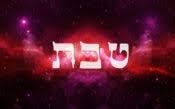- Main Page
- Torah Readings
- Holiday & Monthly commentary from Min. Garrett
- Weekly drash from Jonathan
- Weekly parashah commentary from Min. Garrett
- Contact Us
- Membership
- Mission and Vision Statements
- Statements of Belief
- Books
- Articles by Min. Garrett
- Other Ministries
- Music Links
- Morning Prayers
- CAP/USAF News
- Jewish Calendar and Jewish History
Skip to content



Posts in Category: First Fruits of Zion
Tzav and Shabbat HaGadol
On March 27, 2021 0 Comments
- First Fruits of Zion
TORAH PORTION for Shabbat: March 27, 2021
-
- Tzav (צו | Command)
- Torah: Leviticus 6:1-8:36 *
- Haftarah: Jeremiah 7:21-8:3, 9:22-23
- Gospel: Matthew 9:10-17
* Christian Bible reference varies.
A special portion for Shabbat HaGadol is read this Shabbat!
- Shabbat HaGadol (שבת הגדול | The Great Sabbath)
- Haftarah: Malachi 3:4-24
- Gospel: Matt 17:9-13
In Jars of Clay
The strange laws of Leviticus 6 seem to indicate that anyone who touches a grain offering or a sin offering becomes automatically sanctified. “Anyone who touches its flesh will become consecrated” (Leviticus 6:27), the Torah says. What does this mean? It seems strange to imagine that a person could go into the Tabernacle and touch the flour from a grain offering and it would make him holy just like that. Is that what the Torah really means to teach?
These passages do not refer to consecration by means of a casual touch. The sages explain that consecration occurs only when some of the particles of the most holy sacrifice are transferred to the person or object touching them. For example, if a sin offering is cooked in a clay pot, the porous nature of the clay inevitably absorbs some of the meat of the sin offering. As a result the pot takes on the same sanctity as the sin offering itself and cannot be removed from the sanctuary or used for something else. The Torah says it must be broken.
The law of the clay vessels brings to mind a passage from the Apostle Paul. In 2 Corinthians 4:7, Paul compared believers to jars of clay containing valuable treasure. Though our mortal bodies are perishable and temporary—like a clay jar—the treasure contained within them is immortal: the death and resurrection of Yeshua:
These passages do not refer to consecration by means of a casual touch. The sages explain that consecration occurs only when some of the particles of the most holy sacrifice are transferred to the person or object touching them. For example, if a sin offering is cooked in a clay pot, the porous nature of the clay inevitably absorbs some of the meat of the sin offering. As a result the pot takes on the same sanctity as the sin offering itself and cannot be removed from the sanctuary or used for something else. The Torah says it must be broken.
Also the earthenware vessel in which it was boiled shall be broken; and if it was boiled in a bronze vessel, then it shall be scoured and rinsed in water. (Leviticus 6:28)A bronze vessel, however, is not porous like clay. Therefore, it can be scoured clean and reused for other purposes. Similarly, a garment on which some of the blood of a sin offering is splashed must be cleaned inside the sanctuary before it can be removed. Until the “most holy” blood is removed, the garment takes on the “most holy” status of the sacrifice. These laws are the source of many of the complex and technical rules that regulate a kosher kitchen in Traditional Judaism today.
The law of the clay vessels brings to mind a passage from the Apostle Paul. In 2 Corinthians 4:7, Paul compared believers to jars of clay containing valuable treasure. Though our mortal bodies are perishable and temporary—like a clay jar—the treasure contained within them is immortal: the death and resurrection of Yeshua:
But we have this treasure in earthen vessels … always carrying about in the body the dying of Yeshua, so that the life of Yeshua also may be manifested in our body. (2 Corinthians 4:7-10)It is not a perfect analogy, but the law about clay pots used for cooking the sin offering has some similarity. A clay pot used to prepare a sin offering was no longer just an ordinary clay pot. It was something holy, connected with the sin offering. Yeshua can be compared to a sin offering in His death and resurrection. We are like the clay pots that contain this fabulous treasure. The presence of Yeshua within us consecrates forever. Though we still occupy mortal bodies, these are not ordinary clay pots. We are holy because of the holy treasure within us.
Return to Torah Readings
Vayikra
On March 20, 2021 0 Comments
- First Fruits of Zion
TORAH PORTION for Shabbat: March 20, 2021
- Vayikra (ויקרא | And he called)
- Torah: Leviticus 1:1-5:26
- Haftarah: Isaiah 43:21-44:23
- Gospel: Matthew 5:23-30

Priestly duties woodcut by Johann Christoph Weigel, from “Biblia ectypa : Bildnussen auss Heiliger Schrifft Alt und Neuen Testaments” (PDF capture)
A Soothing Aroma
As the Torah describes the sacrificial service, it says that when the smoke of the offering rises to heaven, it will be a “soothing aroma to the LORD” (Leviticus 1:9). Rashi interprets the “soothing aroma” as a metaphor for man’s obedience. He explains that the aroma of the sacrifice is pleasing to the LORD because it is a token of His children’s obedience. When God “smells” the sacrifice, He delights in the human being who has gone to such effort to draw close to Him.
Regardless of how we understand it, the Torah is clear that God takes delight in the sacrifices. He graciously accepts the gifts of His people, and the smoke that rises from the altar fires is as a soothing aroma to Him.
This seems difficult to reconcile with many statements in the prophets where God speaks out against the sacrifices. For example, in the book of Isaiah He says, “I have had enough of burnt offerings of rams and the fat of fed cattle; and I take no pleasure in the blood of bulls, lambs or goats … bring your worthless offerings no longer” (Isaiah 1:11-13). Likewise, in the book of Jeremiah He says, “Your burnt offerings are not acceptable and your sacrifices are not pleasing to Me” (Jeremiah 6:20). In the book of Malachi He says, “[If only] you might not uselessly kindle fire on My altar … nor will I accept an offering from you” (Malachi 1:10).
In the early days of Christianity, the church fathers often cited texts like these to try to prove that God had never wanted the sacrificial system. Some used these and similar passages to suggest that God had given the sacrifices to the Jews as a punishment. They argued against the Jewish people, claiming that Jesus had done away with the sacrifices because God had always hated them.
That does not make sense. If God always hated the sacrifices, why did He command the children of Israel to bring them in the first place? Why did He state over and over that He was pleased with them?
A better explanation comes from a more careful reading of the prophets. When the prophets seem to speak against the sacrificial system, they are not condemning the mode of worship, they are condemning the worshippers. In every instance the prophetic rebuke is directed toward the immoral, disobedient people among the Israelites who were violating the covenant of Torah while continuing to go through the motions of the sacrificial system. Though their hearts were far from God, they continued to perform their religious rituals.
This can be compared to a wicked womanizer who beats his wife and cheats on her but continues to faithfully attend church every Sunday and take communion with the rest of the congregation. The religious ritual is meaningless and an insult to God. Or suppose the same fellow, after beating his wife and cheating on her, dutifully sends her a bouquet of roses. Would she be pleased to receive the flowers? Hardly. She would say, “Your flowers are an abomination to me!” In the same way, God hates religious rituals when they are performed hypocritically.
These lessons should be a warning to all of us. We must be careful not to develop any sense of right standing with God because of ritual observances. God is interested in the state of our hearts. Our outward rituals should reflect our inward conditions.
Regardless of how we understand it, the Torah is clear that God takes delight in the sacrifices. He graciously accepts the gifts of His people, and the smoke that rises from the altar fires is as a soothing aroma to Him.
This seems difficult to reconcile with many statements in the prophets where God speaks out against the sacrifices. For example, in the book of Isaiah He says, “I have had enough of burnt offerings of rams and the fat of fed cattle; and I take no pleasure in the blood of bulls, lambs or goats … bring your worthless offerings no longer” (Isaiah 1:11-13). Likewise, in the book of Jeremiah He says, “Your burnt offerings are not acceptable and your sacrifices are not pleasing to Me” (Jeremiah 6:20). In the book of Malachi He says, “[If only] you might not uselessly kindle fire on My altar … nor will I accept an offering from you” (Malachi 1:10).
In the early days of Christianity, the church fathers often cited texts like these to try to prove that God had never wanted the sacrificial system. Some used these and similar passages to suggest that God had given the sacrifices to the Jews as a punishment. They argued against the Jewish people, claiming that Jesus had done away with the sacrifices because God had always hated them.
That does not make sense. If God always hated the sacrifices, why did He command the children of Israel to bring them in the first place? Why did He state over and over that He was pleased with them?
A better explanation comes from a more careful reading of the prophets. When the prophets seem to speak against the sacrificial system, they are not condemning the mode of worship, they are condemning the worshippers. In every instance the prophetic rebuke is directed toward the immoral, disobedient people among the Israelites who were violating the covenant of Torah while continuing to go through the motions of the sacrificial system. Though their hearts were far from God, they continued to perform their religious rituals.
This can be compared to a wicked womanizer who beats his wife and cheats on her but continues to faithfully attend church every Sunday and take communion with the rest of the congregation. The religious ritual is meaningless and an insult to God. Or suppose the same fellow, after beating his wife and cheating on her, dutifully sends her a bouquet of roses. Would she be pleased to receive the flowers? Hardly. She would say, “Your flowers are an abomination to me!” In the same way, God hates religious rituals when they are performed hypocritically.
These lessons should be a warning to all of us. We must be careful not to develop any sense of right standing with God because of ritual observances. God is interested in the state of our hearts. Our outward rituals should reflect our inward conditions.
Return to Torah Readings
Vayakhel-Pekudei and Shabbat HaChodesh
On March 13, 2021 0 Comments
- First Fruits of Zion
TORAH PORTION for Shabbat: March 13, 2021
- Vayakhel-Pekudei (ויקהל/פקודי | He gathered/Countings)
- Torah: Exodus 35:1-40:38
- Haftarah: 1 Kings 7:40-50 *
- Gospel: John 13:1-19; Luke 16:1-13
* Special readings for Shabbat HaChodesh are applicable this Shabbat.
- Shabbat HaChodesh (החדש | The Month)
- * Maftir: Exodus 12:1-20
- * Haftarah: Ezekiel 45:16-46:18
- Gospel: Luke 22:1-13

Rebuilding of the Temple according to Ezra (Illustration by Gustave Doré from the 1866 La Sainte Bible, Wikimedia Commons)
Building the Temple
When Moses came down from the mountain, he commanded the assembly of Israel to start building the Tabernacle. Moses did not build the Tabernacle. He brought down the instructions, but the people did the building. When the Messiah comes, He will oversee the construction of the Temple. He has experience as a carpenter.
Moses spoke to all the congregation of the sons of Israel, saying, “This is the thing which the LORD has commanded.” (Exodus 35:4)
Moses, the first redeemer, came down the mountain in the glory of the Father. Then he assembled the people of Israel. He reiterated the commandment of the Sabbath, and he delivered the commandments pertaining to the building of the Tabernacle.
When Messiah, the ultimate Redeemer comes, He will follow in the pattern of the first redeemer. He will gather His assembly, reinstitute the Sabbath, and rebuild the Temple, as the prophets have promised.
The destruction of the Temple corresponds to the death of the Messiah, and its rebuilding corresponds to His resurrection on the third day. He said, “In three days I will raise it up” (John 2:19). Nearly two thousand years have already elapsed from the time of the Temple’s destruction. “With the Lord one day is like a thousand years, and a thousand years like one day” (2 Peter 3:8). This indicates that the Messiah will raise the Temple in the third millennium after its destruction.
The prophets predict that, in the Messianic Era, the Temple will be restored as the house of God in Jerusalem, and it will be the center of the nations. Jewish eschatology firmly links the coming of the Messiah with the rebuilding of the Temple. Maimonides makes the rebuilding of the Temple one of the prerequisites that the Messiah must accomplish to validate His identity: “If He succeeds in all of this, builds the Temple, and gathers in the dispersed remnant of Israel, He is definitely the Messiah.” (Maimonides, Mishneh Torah, Hilchot Melachim 11:4.)
Does this mean that the Messiah will build the Temple with His own hands?
You find that when Moses ascended on high, the Holy One, blessed be He, showed him all the furnishings of the Tabernacle and said, “This is what you will make. This is how you will make the menorah, the table, the altar …” and so forth with all the work of the Tabernacle. As Moses prepared to descend, he assumed he was to personally make the Tabernacle, but the Holy One, blessed be He, said to him, “Moses, I have made you a king. Is it appropriate for a king to do anything for himself? He gives orders and others do the thing for him. Likewise, you must not build it yourself. You must command others and let them do the work.” (Exodus Rabbah 40:2)
Moses commissioned two craftsmen: Bezalel of the tribe of Judah and Oholiab of the tribe of Dan. Moses charged them to carry out the building of the Tabernacle. Likewise, King Solomon hired Hiram of the tribe of Dan to perform the craftsmanship of the Temple. Just as Solomon, the son of David, oversaw the building of the Temple and initiated a golden age of peace and prosperity, Yeshua, the Son of David, will oversee the rebuilding of the Temple and initiate the Messianic Era.
Then “the mountain of the house of the LORD will be established … and all the nations will stream to it … to the house of the God of Jacob” (Isaiah 2:2-3).
Return to Torah Readings
Moses spoke to all the congregation of the sons of Israel, saying, “This is the thing which the LORD has commanded.” (Exodus 35:4)
Moses, the first redeemer, came down the mountain in the glory of the Father. Then he assembled the people of Israel. He reiterated the commandment of the Sabbath, and he delivered the commandments pertaining to the building of the Tabernacle.
When Messiah, the ultimate Redeemer comes, He will follow in the pattern of the first redeemer. He will gather His assembly, reinstitute the Sabbath, and rebuild the Temple, as the prophets have promised.
The destruction of the Temple corresponds to the death of the Messiah, and its rebuilding corresponds to His resurrection on the third day. He said, “In three days I will raise it up” (John 2:19). Nearly two thousand years have already elapsed from the time of the Temple’s destruction. “With the Lord one day is like a thousand years, and a thousand years like one day” (2 Peter 3:8). This indicates that the Messiah will raise the Temple in the third millennium after its destruction.
The prophets predict that, in the Messianic Era, the Temple will be restored as the house of God in Jerusalem, and it will be the center of the nations. Jewish eschatology firmly links the coming of the Messiah with the rebuilding of the Temple. Maimonides makes the rebuilding of the Temple one of the prerequisites that the Messiah must accomplish to validate His identity: “If He succeeds in all of this, builds the Temple, and gathers in the dispersed remnant of Israel, He is definitely the Messiah.” (Maimonides, Mishneh Torah, Hilchot Melachim 11:4.)
Does this mean that the Messiah will build the Temple with His own hands?
You find that when Moses ascended on high, the Holy One, blessed be He, showed him all the furnishings of the Tabernacle and said, “This is what you will make. This is how you will make the menorah, the table, the altar …” and so forth with all the work of the Tabernacle. As Moses prepared to descend, he assumed he was to personally make the Tabernacle, but the Holy One, blessed be He, said to him, “Moses, I have made you a king. Is it appropriate for a king to do anything for himself? He gives orders and others do the thing for him. Likewise, you must not build it yourself. You must command others and let them do the work.” (Exodus Rabbah 40:2)
Moses commissioned two craftsmen: Bezalel of the tribe of Judah and Oholiab of the tribe of Dan. Moses charged them to carry out the building of the Tabernacle. Likewise, King Solomon hired Hiram of the tribe of Dan to perform the craftsmanship of the Temple. Just as Solomon, the son of David, oversaw the building of the Temple and initiated a golden age of peace and prosperity, Yeshua, the Son of David, will oversee the rebuilding of the Temple and initiate the Messianic Era.
Then “the mountain of the house of the LORD will be established … and all the nations will stream to it … to the house of the God of Jacob” (Isaiah 2:2-3).
Return to Torah Readings
Ki Tisa and Shabbat Parah
On March 6, 2021 0 Comments
- First Fruits of Zion
TORAH PORTION for Shabbat: March 6, 2021
- Ki Tisa (כי תשא | When you take)
- Torah: Exodus 30:11-34:35
- Haftarah: 1 Kings 18:1-39
- Gospel: Mark 9:1-10
* Special readings for Shabbat Parah are applicable this Shabbat.
- Shabbat Parah (פרה | Cow)
- * Maftir: Numbers 19:1-19:22
- * Haftarah: Ezekiel 36:16-36:38
- Gospel: John 11:47-57
He Negotiated for Forgiveness
After forty days of fasting in his tent of meeting, Moses began to negotiate with God. Ever since the sin of the golden calf, the LORD had not referred to Israel as His people. Rather, they were Moses’ people: “Your people, whom you brought up from the land of Egypt” (Exodus 32:7).
Moses, on the other hand, remained in God’s favor. As he negotiated for forgiveness and atonement, he banked heavily on God’s favor for him. He complained that, although he remained in God’s favor, he felt disfavored because he was told to lead the people without God’s presence.
The Hebrew word translated as “favor (chen, חן)” can also be translated as “grace.” Thus Moses argued for mercy and forgiveness on the basis of God’s grace toward him.
Moses rejected the offer. Speaking in the first-person plural form, he said, “If Your presence does not go with us, do not lead us up from here” (Exodus 33:15). It was not adequate for God to accompany Moses, He needed to accompany the whole people. Moses deliberately identified himself with the people. It was as if Moses said, “If you want to show me favor and go with me, you need to show us all favor and go with all of us, because I am with the people.” Moses would accept nothing less than grace for the whole nation. He knew that he enjoyed the favor of the LORD; he sought to include the nation in the merit of God’s favor for him:
The LORD conceded again and responded, “I will also do this thing of which you have spoken; for you have found favor in My sight and I have known you by name” (Exodus 33:17). God agreed to forgive the nation, go with them, and acknowledge them as His people on the basis of His favor for Moses.
This story illustrates the Chasidic concept of tzaddikism where the merit and favor of a single righteous person can be extended to others. On the basis of God’s gracious favor for one man, the entire nation received the forgiveness of sin and a restoration of relationship with the Almighty. On the merit of one righteous man’s standing with God, all Israel is granted standing with God. These are the mechanics of the gospel. The ultimate redeemer is like the first redeemer, making atonement for the entire nation on the basis of His merit alone.
The story also illustrates the meaning of the word grace. Christian teachers sometimes define “grace” as God’s unmerited favor. On the contrary, grace (chen, חן) implies merited favor. Someone did merit it. Our righteous Messiah merited God’s favor, and He identified Himself with us so that we might share in that favor.
Return to Torah Readings
Moses, on the other hand, remained in God’s favor. As he negotiated for forgiveness and atonement, he banked heavily on God’s favor for him. He complained that, although he remained in God’s favor, he felt disfavored because he was told to lead the people without God’s presence.
The Hebrew word translated as “favor (chen, חן)” can also be translated as “grace.” Thus Moses argued for mercy and forgiveness on the basis of God’s grace toward him.
You have said, “I have known you by name, and you have also found favor in My sight.” If I have found favor in Your sight, let me know Your ways that I may know You, so that I may find favor in Your sight. Consider too, that this nation is Your people. (Exodus 33:12-13)On the basis of Moses’ complaint, the LORD relented ever so slightly. Whereas previously He had declared that He would not go with Israel as they went up from Sinai, now He conceded that He would go with Moses. He said to Moses, “My presence shall go with you, and I will give you rest” (Exodus 33:14). Note that the pronoun “you” appears is in the singular form. The LORD only promised to go with Moses and give Moses rest. He did not say so regarding Israel, nor did He acknowledge them as His people.
Moses rejected the offer. Speaking in the first-person plural form, he said, “If Your presence does not go with us, do not lead us up from here” (Exodus 33:15). It was not adequate for God to accompany Moses, He needed to accompany the whole people. Moses deliberately identified himself with the people. It was as if Moses said, “If you want to show me favor and go with me, you need to show us all favor and go with all of us, because I am with the people.” Moses would accept nothing less than grace for the whole nation. He knew that he enjoyed the favor of the LORD; he sought to include the nation in the merit of God’s favor for him:
For how then can it be known that I have found favor in Your sight, I and Your people? Is it not by Your going with us, so that we, I and Your people, may be distinguished from all the other people who are upon the face of the earth? (Exodus 33:16)Moses deliberately identified himself with the people, saying “us,” “we,” and, “I and Your people.” He no longer appealed to the covenant with Abraham, Isaac, and Jacob. He no longer appealed to the “what-will-the-Egyptians-
The LORD conceded again and responded, “I will also do this thing of which you have spoken; for you have found favor in My sight and I have known you by name” (Exodus 33:17). God agreed to forgive the nation, go with them, and acknowledge them as His people on the basis of His favor for Moses.
This story illustrates the Chasidic concept of tzaddikism where the merit and favor of a single righteous person can be extended to others. On the basis of God’s gracious favor for one man, the entire nation received the forgiveness of sin and a restoration of relationship with the Almighty. On the merit of one righteous man’s standing with God, all Israel is granted standing with God. These are the mechanics of the gospel. The ultimate redeemer is like the first redeemer, making atonement for the entire nation on the basis of His merit alone.
The story also illustrates the meaning of the word grace. Christian teachers sometimes define “grace” as God’s unmerited favor. On the contrary, grace (chen, חן) implies merited favor. Someone did merit it. Our righteous Messiah merited God’s favor, and He identified Himself with us so that we might share in that favor.
Return to Torah Readings
Tetzaveh
On February 27, 2021 0 Comments
- First Fruits of Zion
TORAH PORTION for Shabbat: February 27, 2021
- Tetzaveh (תצוה | You shall command)
- Torah: Exodus 27:20-30:10
- Haftarah: Ezekiel 43:10-27
- Gospel: Matthew 5:13-20

Illustration from The Bible and Its Story Taught by One Thousand Picture Lessons, depicting the services of the high priest inside the Temple, edited by Charles F. Horne and Julius A. Bewer. 1908. (Image: Wikimedia Commons)
Kohens, Priests of a Different Kind
Not long after separating from Judaism, Christianity developed a clerical class responsible for shepherding the people, officiating at services, and conducting the sacraments. The clerical class of presbyters came to be called priests. However, the various priesthoods of Christendom are different from the priesthood of the Bible. The biblical priesthood is unrelated to the priesthood that operates within Christianity.
The Hebrew word for “priest” is kohen (כהן). If you are Jewish and have a last name like Cohen, Kowen, Kahan or Koen, you are probably a descendant of Moses’ brother Aaron and his sons. Your ancestors served as priests in the Tabernacle and in the Temple in Jerusalem.
Priests and rabbis are not the same. A rabbi is someone who has gone to rabbinical school (yeshivah) and received rabbinic ordination by an official ordaining body within Judaism. Any Jew can become a rabbi, and a single Jewish community often has many rabbis.
To this day, the priests retain their priestly status in Judaism. Descendants of the Aaron are still subject to special restrictions and laws of Torah that applied to the biblical priesthood. Moreover, the priests enjoy special privileges in the synagogue and serve in certain ritual functions. For example, if a priest is present on Sabbath, he is given the first opportunity to read from the Torah scroll. At the end of the Sabbath prayers, he is called up to offer the priestly blessing over the congregation. Priests are also responsible for ritual functions in the community like the redemption of firstborn sons.
Despite these modern functions, the Aaronic priesthood isn’t what it used to be. In the days when the Tabernacle (or Temple) stood, the priesthood was a crucial component in the service of God. They were responsible for worship services. They handled the sacrifices and took care of the altar fires, lit the menorah, burned the sacred incense, baked the bread of the Presence and did all the service of the Tabernacle. They carried out the divine service on behalf of the entire nation of Israel. Moreover, they were responsible for teaching the people Torah.
The priesthood illustrates our relationship to God. Like the common Israelite in the days of the Tabernalce, we are unable to enter directly into the presence of God. Instead, we need a go-between—an intermediary. In the Tabernacle and the Temple, the intermediaries were called priests. They facilitated the relationship between God and the people of Israel. In a similar way, we disciples of Yeshua regard our Savior as our intermediary with God. He is the go-between who acts as a priest for us in the heavenly Temple. However, the priesthood of our Master is a spiritual one, and does not supplant the worldly, eternal priesthood promised to the sons of Aaron.
The priests have been out of work since the destruction of the Temple, but they could be called back to work if the Temple was ever rebuilt. The priests today await the rebuilding of the holy Temple in Jerusalem, when they will be called up for duty. One day they will be. According to the prophet Jeremiah, God’s promise to restore the Aaronic priesthood is inseparably linked with his promise to send the Davidic Messiah:
The Hebrew word for “priest” is kohen (כהן). If you are Jewish and have a last name like Cohen, Kowen, Kahan or Koen, you are probably a descendant of Moses’ brother Aaron and his sons. Your ancestors served as priests in the Tabernacle and in the Temple in Jerusalem.
Then bring near to yourself Aaron your brother, and his sons with him, from among the sons of Israel, to minister as priest to Me—Aaron, Nadab and Abihu, Eleazar and Ithamar, Aaron’s sons. (Exodus 28:1)In the Bible, only the descendants of Aaron could be priests. They were born into the position. Priests did not undertake vows of celibacy. Instead, priesthood was passed on through families. The descendents of Aaron have attempted to preserve their family lineage through the generations. The priests are a special family group within the Jewish people. Most Jewish communities have several families that belong to the priesthood.
Priests and rabbis are not the same. A rabbi is someone who has gone to rabbinical school (yeshivah) and received rabbinic ordination by an official ordaining body within Judaism. Any Jew can become a rabbi, and a single Jewish community often has many rabbis.
To this day, the priests retain their priestly status in Judaism. Descendants of the Aaron are still subject to special restrictions and laws of Torah that applied to the biblical priesthood. Moreover, the priests enjoy special privileges in the synagogue and serve in certain ritual functions. For example, if a priest is present on Sabbath, he is given the first opportunity to read from the Torah scroll. At the end of the Sabbath prayers, he is called up to offer the priestly blessing over the congregation. Priests are also responsible for ritual functions in the community like the redemption of firstborn sons.
Despite these modern functions, the Aaronic priesthood isn’t what it used to be. In the days when the Tabernacle (or Temple) stood, the priesthood was a crucial component in the service of God. They were responsible for worship services. They handled the sacrifices and took care of the altar fires, lit the menorah, burned the sacred incense, baked the bread of the Presence and did all the service of the Tabernacle. They carried out the divine service on behalf of the entire nation of Israel. Moreover, they were responsible for teaching the people Torah.
The priesthood illustrates our relationship to God. Like the common Israelite in the days of the Tabernalce, we are unable to enter directly into the presence of God. Instead, we need a go-between—an intermediary. In the Tabernacle and the Temple, the intermediaries were called priests. They facilitated the relationship between God and the people of Israel. In a similar way, we disciples of Yeshua regard our Savior as our intermediary with God. He is the go-between who acts as a priest for us in the heavenly Temple. However, the priesthood of our Master is a spiritual one, and does not supplant the worldly, eternal priesthood promised to the sons of Aaron.
The priests have been out of work since the destruction of the Temple, but they could be called back to work if the Temple was ever rebuilt. The priests today await the rebuilding of the holy Temple in Jerusalem, when they will be called up for duty. One day they will be. According to the prophet Jeremiah, God’s promise to restore the Aaronic priesthood is inseparably linked with his promise to send the Davidic Messiah:
Thus says the LORD, “If you can break My covenant for the day and My covenant for the night, so that day and night will not be at their appointed time, then My covenant may also be broken with David My servant so that he will not have a son to reign on his throne, and with the Levitical priests, My ministers.” (Jeremiah 33:20-21)
Return to Torah Readings









